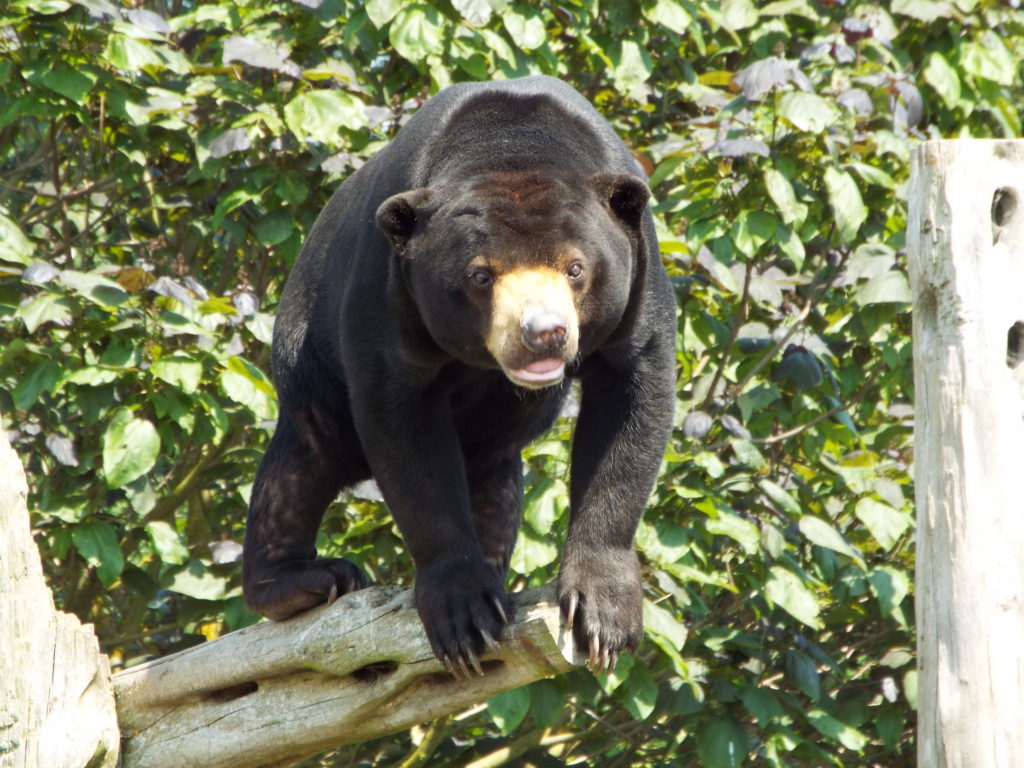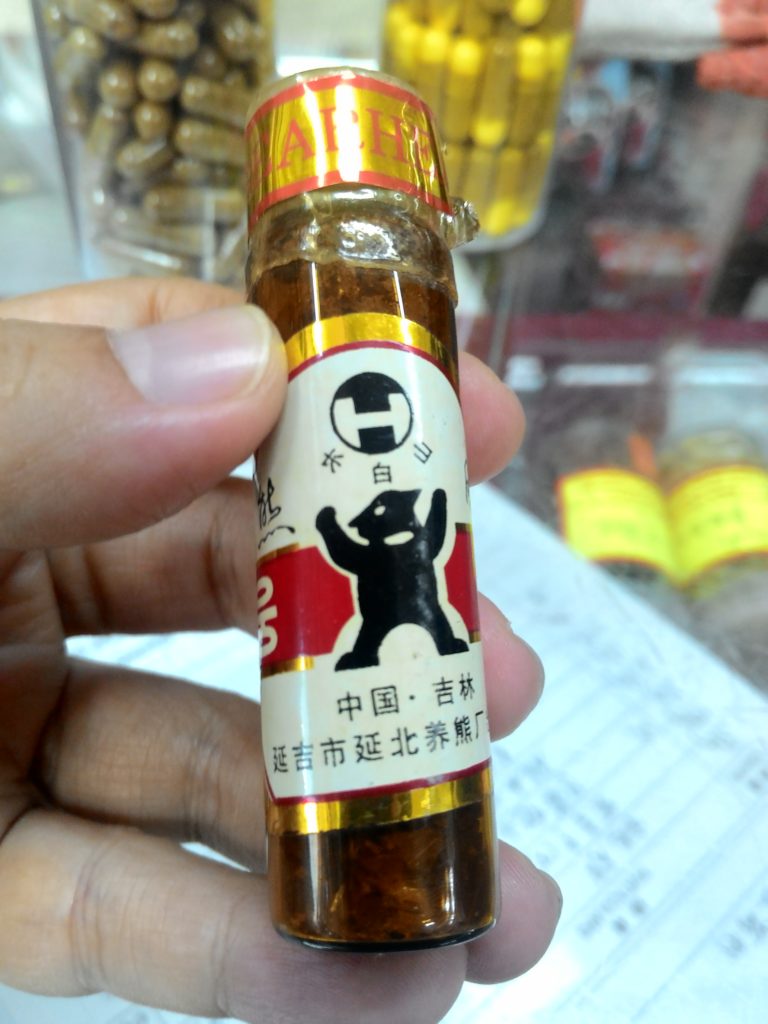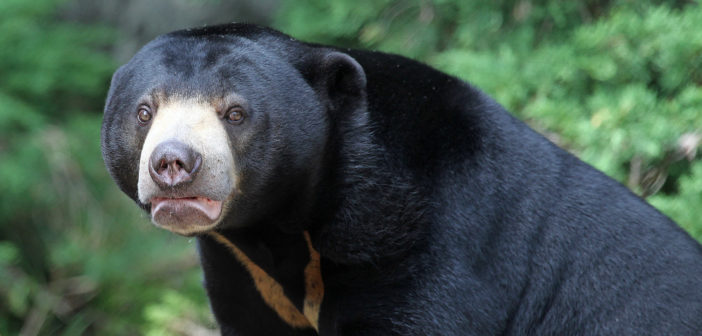A new TRAFFIC study has recorded bear-based medicines on offer in 69% of Traditional Chinese Medicine (TCM) shops surveyed in Peninsular Malaysia between 2017–2018. In 2012, it was 48% of shops surveyed.
The Federal Territory of Kuala Lumpur and Selangor had the highest proportion of shops found with bear bile products, followed by Johor and Perak. Spot-checks at TCM shops by TRAFFIC in selected states in 2019 confirms this widespread availability. The survey did not cover the East Malaysian states of Sabah and Sarawak.
As in previous surveys, bear bile pills were the most common product observed on sale, accounting for 88% of all items found. This was followed at a distance by gall bladders (7%) and to a much lesser extent, powder, vials and ointment.

While the pills were easily available, authenticity was unclear due to varied and inconsistent claims by retailers and labelling, or lack thereof, on some products. Only a fraction of the sellers claimed to have pure bear bile pills compared to the previous survey.
While trade remains open, it has become less clear whether retailers are selling genuine bear bile products or are simply trying to circumvent the law by claiming their bear bile products only contain herbs and other animal bile.
Kanitha Krishnasamy, Director for TRAFFIC in Southeast Asia
Most retailers either told researchers that the sale of bear bile products was prohibited or that some pills sold as bear bile actually contained a mixture of herbs and other animal bile. In two cases, sellers told researchers that any purchase of bear bile products would not be reflected in receipts.
“If indeed a growing number of traders are passing off other ingredients – be it animal-based parts or not – as bear-bile medicine, this adds another worrying dimension to the problem and one that requires scrutiny by regulatory bodies. But regardless, this practice sustains the belief that bear-based medicine is effective and fuels the demand and illegal trade in bears,” said Krishnasamy.

“Our federation is committed to ensuring that business is conducted responsibly and legally, and towards this, we are working with TRAFFIC and the regulatory bodies to educate our members to be compliant with laws,” said Ting Ka Hua, President of the Malaysian Federation of Chinese Physicians and Medicine Dealers Association of Malaysia (FCPMDAM).
An Update on the Bear Bile Trade in Peninsular Malaysia comes weeks after the 2nd International Symposium on Sun Bear Conservation and Management concluded in Sabah, underpinned by the Global Conservation Action Plan for Sun Bears (2019-2028). Launched in June 2019, it is the world’s first ever range-wide Action Plan for a terrestrial bear species, setting out an ambitious 10-year strategy to safeguard the world’s smallest bear species, which continues to be poached for trade.
A progress review of this Action Plan, carried out at the 2nd International Symposium in September, showed some actions already underway, including on the trade related threats that TRAFFIC and partners are working on in the region. Meanwhile other issues, such as those concerning land use management and enforcement, were highlighted as gaps that required more urgent interventions. Prior to the symposium, a smaller group of experts considered priority issues and actions for Sabah, which will be used to establish a state-wide plan for Sun Bear conservation and management.
Featured image: a sun bear, the world’s smallest bear. Image credit David Lochlin, CC BY-SA 2.0.






1 Comment
All well with doing spot checks on shops selling products containing bear bile, what’s the maximum penalty which I didn’t read about?
If enforcement is not conducted along with heavy monetary and jail sentences the trade will continue. By the time education and peoples atttude changes the bears will reach a “ critically endangered “ phase and then to the point of “ non viable species “
Whether the products contain a small or large percentage is irrelevant, refine your ways to pinpoint the containment of bear bile and if positive, start your prosecution.
Laws must be enforced for this species protection and nothing like to make it too expensive to be caught with it.
I assure you the heavy loss of money due to a fine or penalty will make anybody keep their hands off it.